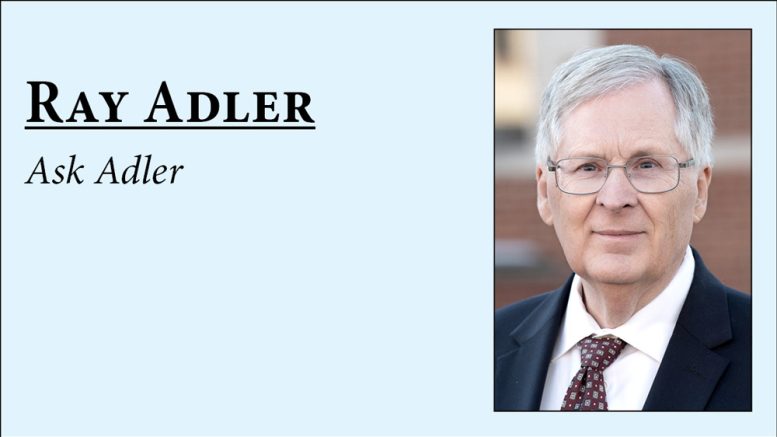“The tramp was an ill-kept, teenage youth who came to our door and hesitatingly asked Mother for something to eat,” Grandpa Howard began.
It was another one of his many stories. He did not act like a professional bum; however, his appearance indicated that he had been on the road for some time – probably with no particular destination or future plans in view.
His history was a matter of conjecture, but according to the story told, he lived in an Eastern state until his mother’s death, then, after the home was broken up, and having no regular place to stay, he roamed westward.
The evident facts were that he was only a boy, away from home, hungry, and wanting food. The immediate need was a substantial meal rather than a scathing lecture – although he was apparently able to earn his living. There is an axiom to the effect that a drowning man should first be helped out of the water before inquiring how he happened to fall in. Perhaps the youth often had been hungry and probably would be again and again, as others closed the door against him.
To expect something for nothing is at variance with logical reasoning. While it is written, “Be not forgetful to entertain strangers; for thereby some have entertained angels unawares.” This should not be misconstrued to encourage indolence and vagrancy. The Scriptures also declare “if any would not work, neither should he eat.” Simply giving a hand out to mendicant induces further begging, unless it also affords medical stimulus.
After the youth had eaten heartily, he observed that Grandpa was reading the Bible, and coming near, softly remarked: “When my mother was living, she read to me in a book like that. I wish I had one.” Being the oldest grandson in the family at his grandfather’s death, two Bibles were given to Grandpa Howard. One of which was a small leather-bound book, filled with age, that I had intended to keep for an heirloom. Grandpa said he shall never know whether the wondering boy ever read the book, or carelessly tossed by the roadside. It may have recalled the lessons taught on his mother’s knee.
Grandpa was fully persuaded that the Bible was an infallible guide that each traveler needs in the journey of life. It promotes honest endeavor, strengthens the weak, comforts of sorrowing, and gives assurance at the last mile of the way.
Grandpa Howard went on to say that soon after the death of an aged mother, he was called to assist in arrangements for the final rites. The family requested that he write the obituary. They were indefinite concerning the necessary data, and when Grandpa asked if there were a family record, a daughter replied, “Yes, in an old Bible that is around here somewhere. I will look for it.” After rummaging through a miscellaneous lot of magazines and newspapers she said, “I guess it has been misplaced.”
When Grandpa inquired regarding the number and names of the surviving members there was a discrepancy in the answers given. Finally, a daughter said, “Well, there is one more, living, but she was born out of wedlock, so we will not count her.”
Grandpa had not been acquainted with the deceased, but the inevitable reputation of her sons impressed him that perhaps the Bible had long been misplaced in their home.

